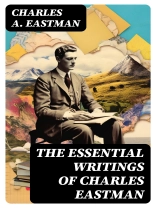The Essential Writings of Charles Eastman offers a compelling exploration of Native American identity, philosophy, and the struggle for cultural preservation in a rapidly changing world. Through a blend of autobiographical anecdotes, essays, and lectures, Eastman articulates the values, traditions, and challenges faced by Sioux tribes, while employing a poignant literary style that bridges poetic imagery with scholarly rigor. His works reflect a deep understanding of Native wisdom infused with progressive ideas, making his contributions significant within both Indigenous literature and American literature as a whole. Charles A. Eastman, an esteemed physician and author, was born to the Santee Dakota tribe and raised in the traditional ways of his people before attending Dartmouth College and Boston University. His unique background, which straddled both Native and Western cultures, compelled him to advocate for Indigenous rights and express the importance of cultural heritage. Eastman’s lived experiences during a time of immense change influenced his desire to communicate the sacredness of Native traditions and promote understanding between cultures. This anthology is recommended for readers seeking an authentic perspective on Native American culture and the broader context of American history. Eastman’s eloquent prose and insightful reflections offer a vital contribution to contemporary discussions of identity, making it essential reading for scholars, students, and anyone interested in the complexities of cultural intersectionality.
Об авторе
Charles Alexander Eastman, born Ohiyesa in 1858 near Redwood Falls, Minnesota, was a renowned Native American author, physician, and reformer. A Santee Dakota Sioux, Eastman’s early life was rooted in traditional Indigenous culture until the age of fifteen, when he was thrust into Anglo-American society. His bicultural experiences, acutely etched between these contrasting worlds, furnished rich material for his literary work and advocacy. Eastman’s oeuvre, which includes ‘The Essential Writings of Charles Eastman’, reflects a deep engagement with Native American identity, spirituality, and a staunch critique of U.S. indigenous policies. His writings reveal a literary style that is introspective yet accessible, often embodying a narrative blend of personal history and cultural commentary. Eastman’s pioneering efforts in literature and social causes make him a significant figure in the pantheon of American Indian intellectuals, offering profound insights into the complexities of cultural survival and adaptation in the face of persistent colonial pressures. His books not only serve as a historical record but also as a beacon for cultural understanding and reconciliation, reflective of a voice that sought to bridge divided worlds through the power of the written word.












